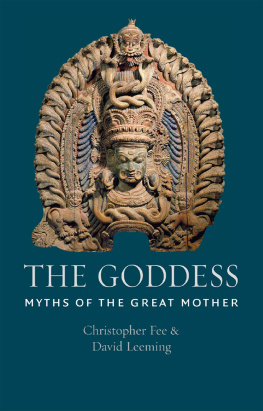This is dedicated to Ulysses, whose brave and tenacious spirit exists in all of us, rising to meet challenges great and small.
Acknowledgments
Thanks first to my wife, Terry, who shared the highs and lows of the travel and research that went into this book, as well as taking many of the beautiful color photographs appearing in the insert, which keep it all fresh for me. Thanks to my sons, Christian and Mike, for their friendship and inspiration and for meeting my never-ending need for technical assistance.
The greatest thanks to Julie Pavlovic-Fill, who braved her way down the rough path of the manuscript, making corrections and providing suggestions and help to bring this all together. Many thanks also to Kerri Poole for her assistance with maps and graphics.
Very special thanks to Marilyn Rennie of Essex for her inspiration. Thanks to Peter Fletcher of Surrey, Kent Johansen of Vancouvers Grand Lodge, and Victor Kachur of the Midwestern Epigraphic Society.
Deepest gratitude to everyone at Inner Traditions, especially Ehud Sperling, Jon Graham, Cynthia Fowles, Anne Dillon, Patricia Rydle, Jeanie Levitan, Kelly Bowen, and Peri Champine for everything from encouragement and hospitality to meticulous editing and creative design. Also, a great many thanks to editor extraordinaire Nancy Yeilding, whose contributions to this book were invaluable.
Contents
Introduction:
Chapter 1
Chapter 2
Chapter 3
Chapter 4
Chapter 5
Chapter 6
Chapter 7
Chapter 8
Introduction:
The Real War against Troy
The tale of the Trojan War is one of the greatest war stories in the history of the world. Introduced by the poet Homer in 775 BCE, it is the first written history of the Greeks. The plot is of a united Greece bringing down the power of a great and powerful enemy. But it is set improbably in an age when Greece was not united. The war is waged against an enemy that has never been satisfactorily determined. Homers contemporaries among the early Greek writers accepted a historical Trojan War in the Mediterranean, occurring circa 1200 BCE, as the basis for the Iliad and the Odyssey . Over time, historians both ancient and modern have also come to believe that the Homeric siege took place in northwest Turkey; a city has been excavated there that may or may not corroborate their beliefs.
After Homer, another record recalls another great war between the Athenians and the people of King Poseidon. It is also set in an impossibly early time frame, when Athens was still in the Stone Age. This text, written by the philosopher Plato, tells of a victory against another enemy that has never been foundAtlantis.
Thus it is believed todayfor less than scientific reasonsthat Homers Troy was in Turkey, and that Platos Atlantis was a figment of a great imagination. But both are wrong. Both tales describe a real war that took place over three thousand years ago, but both Plato and Homer altered significant details in their stories, such as the location of the war and the identity of the combatants. As this book will demonstrate, the Trojan War did not take place on the Anatolian plains of modern Turkey. It was not fought between allied cities of Mycenaean Greece and a foreign power.
The magnitude of the war may have been as great as Homer described, but the backdrop was different. Both the Iliad and the Odyssey were ancient tales, told and retold for over four hundred years until Homer, said to be a blind poet, recorded them for posterity. Homer heard and translated an ancient tale, transporting it in time and place. The Iliad tells a story that has its beginning in the last few days of what would become known as the Trojan War and closes with the triumph of Achilles over Hector. It is a not cause for celebration, as it is a sad outcome to a long war.
In the second epic of Homer, the Odyssey , the wanderings of the war hero known as Odysseus or Ulysses are described. Most historians, from Homers time to the present, have despaired of ever finding reasonable locations for Ulysses twelve adventures in a Mediterranean setting. For example, Homer has Ulysses sailing nine days in one direction without reaching land. But in the Aegean Sea, travel along a straight line would always place the sailor on land before long.
The Odyssey opens with the story of the Trojan horse, the horse used as a ruse to enable the Greeks to enter the citadel of Troy and destroy the city. The hero, Ulysses, is a wily, seasoned veteran who brings about the victory against Troy. He has been away from home for ten years fighting the war. And he now wants to get home. Though the distance is not particularly long, it will take him another nine years to get there. Along the way he has numerous adventures: he will battle Cyclops, witness his men being eaten by cannibals on one island and turned into pigs on another, live with beautiful sorceresses, fight dragons, descend into hell, and defy godsall before attempting the rescue of his wife and home.
Despite the greatness of the tale, the poetic description made complete by Homer, and the literary height of the story, it has flaws. The problems are more serious than explaining the presence of sirens and sea monsters. Whereas a heroic tale can take on larger-than-life proportions, more-mundane elements of it should ground the story in a particular reality if it is based on truth. Such mundane incidentals are lacking in the epics. The first and most important is that there was no Troy anywhere near where Homer placed the city.
During Homers time frame for the Trojan War1200 BCEthe Hittites were the rulers of much of Anatolia. They were far from primitive and were prolific writers who left records that have been translated in modern times. These records cover in detail the battle of Kadesh, fought against Egypt in the same century. Yet they say nothing of a Troy, or an Ilium, or a war against invaders from the country that would someday be called Greece. While Homer lists numerous commanders of the Trojan army who fought against the invaders, and the Hittite texts list the commanders of their own army who fought in the war against the pharaoh, none of the names is related. The names of the Homeric Trojans all sound like Greek names, very different from the typically long Anatolian names.
Far more difficult to explain is the eventuality that the war itselfin which one hundred thousand invaders sacked twenty cities and finally conducted a ten-year siege on a city of fifty thousand defenderscould take place on or within the borders of Anatolia without the Hittite empire providing assistanceor even mentioning it in their records. In fact, neither the Hittites, the Egyptians, nor the collapsing Mycenaean empire ever mentioned it.
When Greek historians living in the centuries after Homer tried to reconcile the tale of the poet with a true history, they commented on the lack of records of any such war or battle and despaired of ever locating the Homeric geography. Herodotus asked the Egyptians if the story was true. Egypt had no knowledge of such a great war. Thucydides pointed out that Hellas, as Greece was known, had never participated in a military action as a whole, and there is no record that there even was a Hellas at that time.
Quite simply put, many of the places mentioned in the 775 BCE text were not in place in 1200 BCE. They did not exist until they were founded centuries after the war. Further, of 170 places mentioned in Homer, only half have ever been identified. And of those, only half existed in the Mycenaean era. Names given for the Pylos area are not even tentatively traceable, a fact that is both disappointing and puzzling to modern historians.









